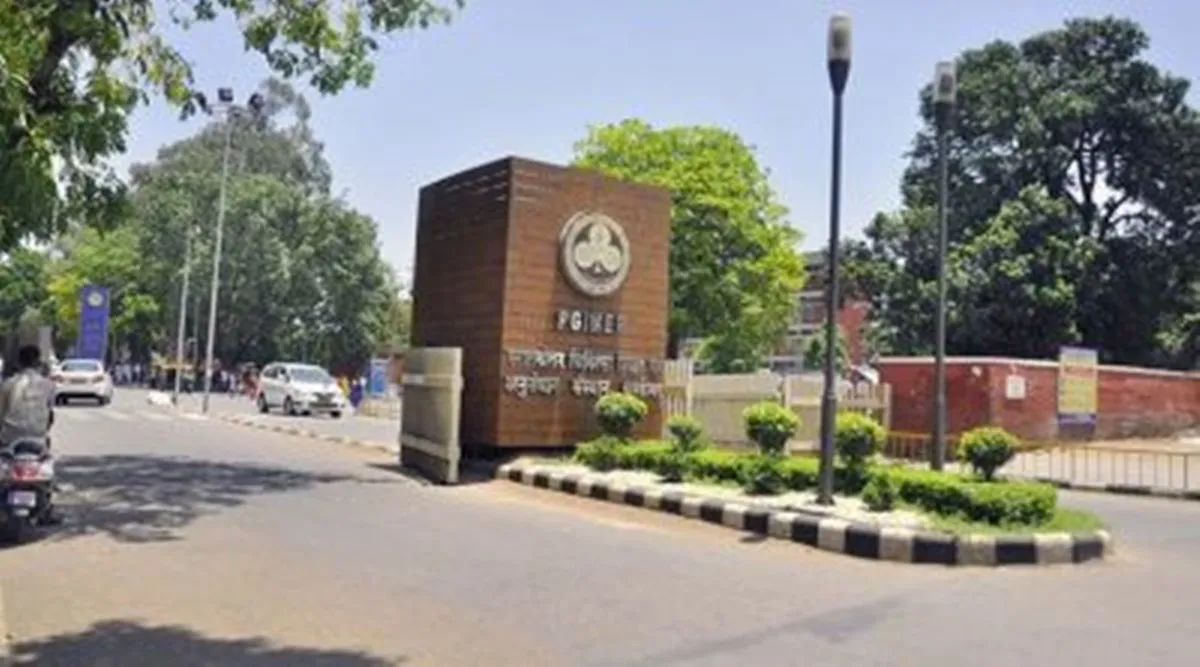 Entry Gate at PGIMER in Chandigarh.
Entry Gate at PGIMER in Chandigarh.
The ‘subject’ of a letter doing the rounds of various departments and tables of doctors at the Post- Graduate Institute of Medical Education and Research (PGIMER), Chandigarh, reads: “Attention Towards Nepotism in Faculty Selections in PGIMER, Chandigarh.” It’s a letter that many wish they had not received, many don’t want to acknowledge it and only some want to face the truth and do something about the serious ‘subject’.
Signed by a candidate applying for a post of a faculty member at the premier institute of national importance, the letter alleges that in recent years, faculty selections at PGIMER are biased, with many relatives of faculty members – sons, daughters, cousins, sons-in-law — being given priority for selection over and above other candidates with a higher merit, better work experience and resume. The latter adds that very few seats of faculty per department are advertised, with at least 50 candidates, higher in specialties like PhD and dental, applying for the post, with many failing to get a fair chance, if a relative of a faculty member of PGIMER has applied for the same post.
The letter gives in detail many instances of family members of PGIMER faculty, now in various departments of the institute, with the department of ophthalmology being listed as ‘the favourite place of favoritism’, with the daughter and son-in-law of a former director of the institute being selected for a faculty job, while he was still serving as the director, and how two sons-in-law of senior faculty members are already selected in two departments, while two daughters have applied for a faculty job here.
The letter goes on to add that an extra seat was added in the department of pharmacology during COVID times to ‘fit’ the son of a senior faculty member, with the relatives of faculty members also part of the departments of anaesthesia, orthopedics, radiology, with the daughter-in-law of another former director given preference over as many as 100 qualified candidates who had applied for the same position.
A senior faculty member and head of a department here, reads the letter, is nothing without the PGI, with the premier institute having nurtured his talent and making him what he is today for 36 long years. “We have got everything from here. It is a dream job, and there’s no better place in the country for patient care than the PGI. Any ordinary person can walk into the Emergency here and get the best treatment in the country, without any references. That’s the power of this institute. And the backbone of this place, which is better than AIIMS, is its remarkable faculty, with the future doctors nurtured by some of the best minds. But if favoritism is shown in faculty recruitments, then all will be lost, for it’s against the fabric and standards of this place and PGI needs to set the standards. It is our sacrosanct duty to bring this devious problem to light and not be unfair to many outstanding, deserving, committed and eligible students, who will give the next 30 years of their life to PGI, for merit cannot be replaced. There may be more facilities in hospitals abroad, but where are the patients. The resident doctors here get to learn from the cream of the country, they don’t have to please anyone, with us seniors protecting and guiding them at every step. It’s a clean system, which must not be destroyed. The eminent people in the selection committee must ensure that their judgment is not clouded by any relative or colleague, and only the best should be part of PGIMER, only then will it remain an Institute of excellence.”
A senior resident doctor is of the view that many people who have been named in the letter have done their MD from PGIMER, and have got admission here, because of their rank, talent and merit, for there cannot be any favoritism in the selection, as they have cleared their exams, with AIIMS and PGIMER the toughest places to get through. “But I won’t hesitate to say and also condemn the fact that when there is a competition among equals, recommendations and nepotism play a role in selection of faculty.”
Another senior doctor at an important position here says that some wards of faculty members have been accommodated at PGIMER, and not entirely on merit. “This is something we have seen more in the last five years. The selection committee is supposed to be independent, on paper everything is in perfect order, the merit, work experience, so what and how do you contest. Some are taken on an adhoc or contract basis and then pushed through for selection.”
Prof Jagat Ram, PGIMER director, closed the matter by saying that faculty members at PGIMER are chosen by a national selection committee, comprising eminent people and experts from different parts of the country. “This is not a local committee. The candidates appear before this committee and the final selection is their decision, done on merit. Such letters are the work of frustrated elements, whose performances are poor and so they make such charges.”